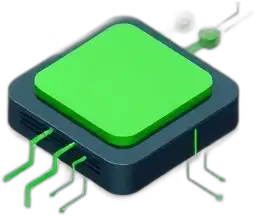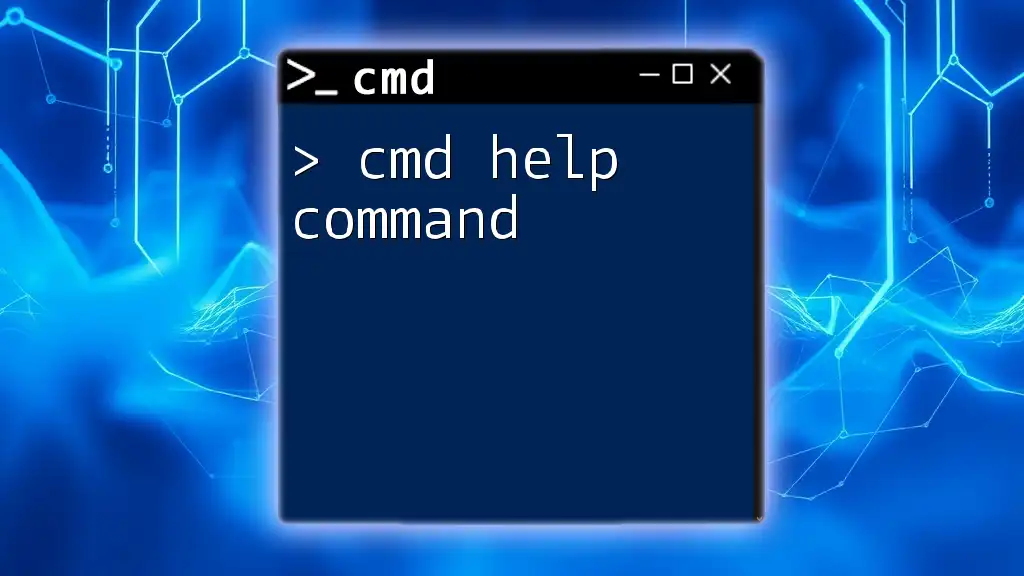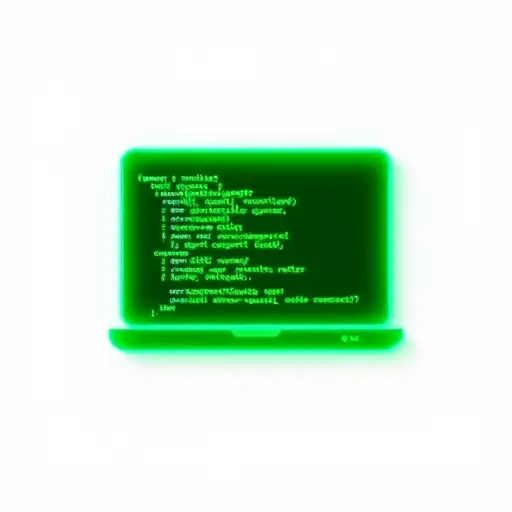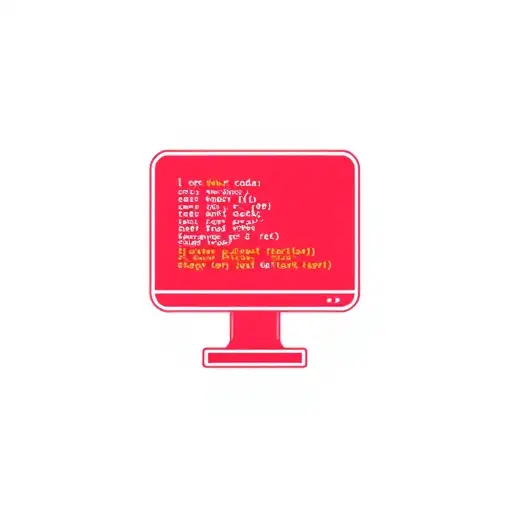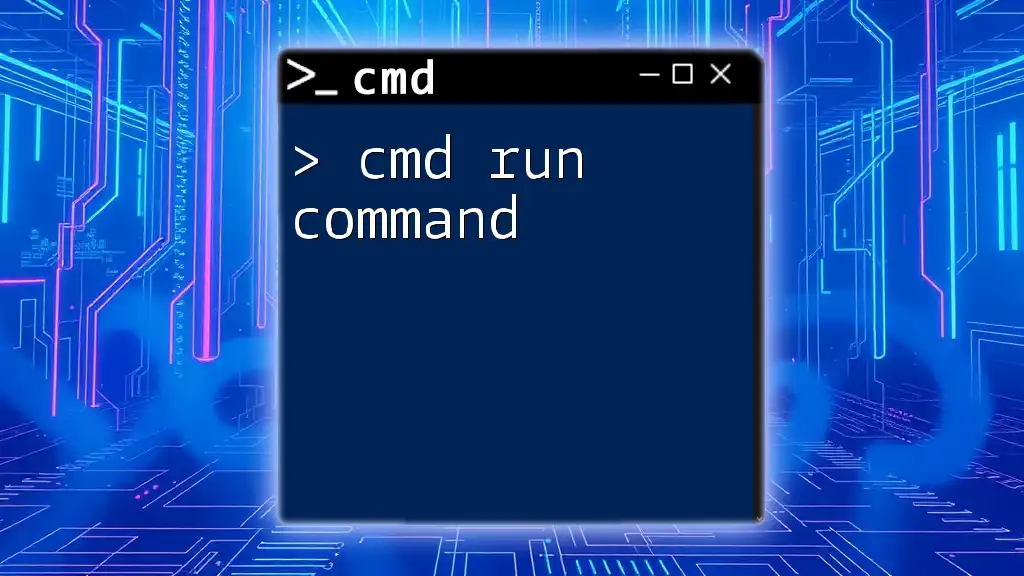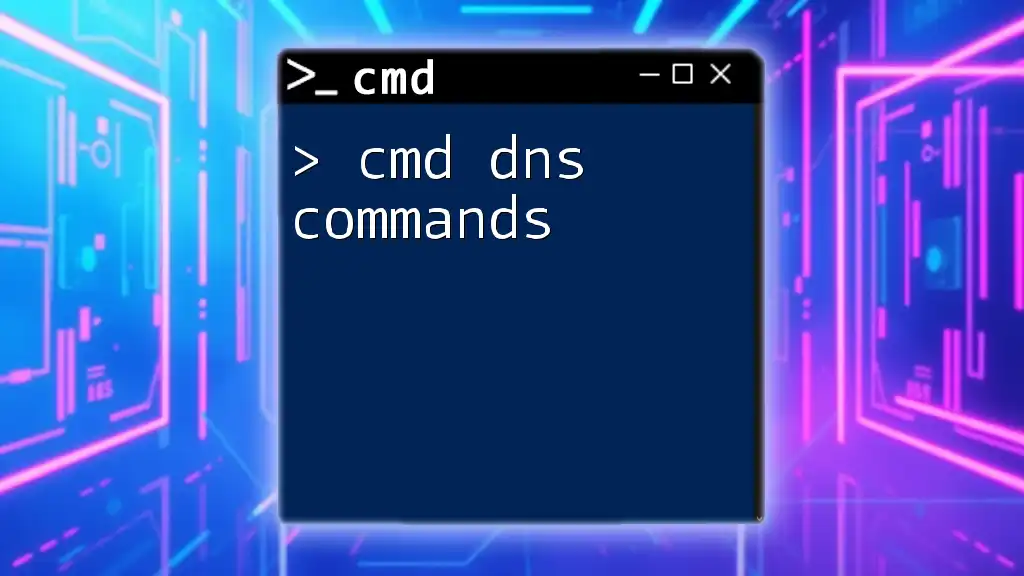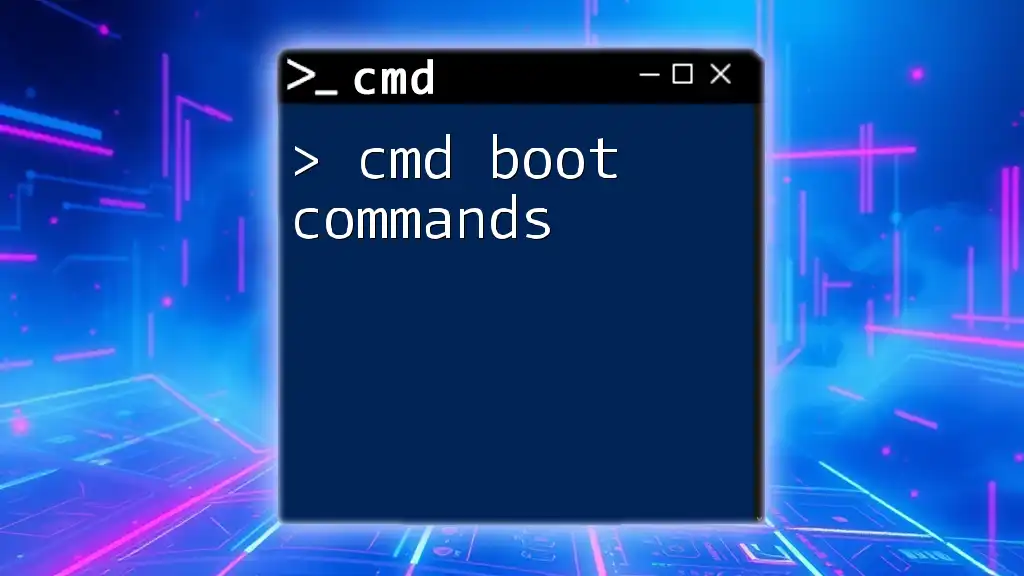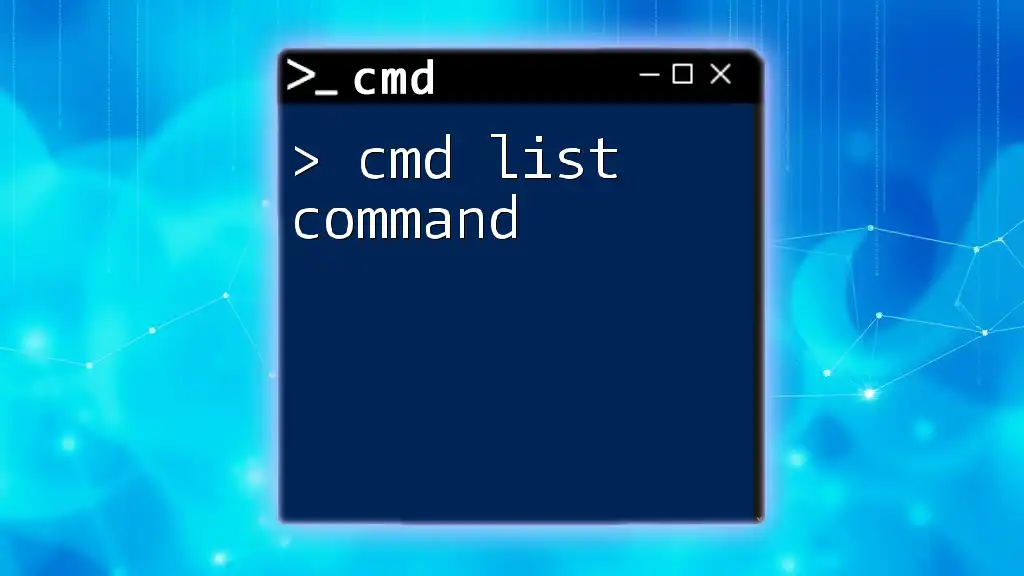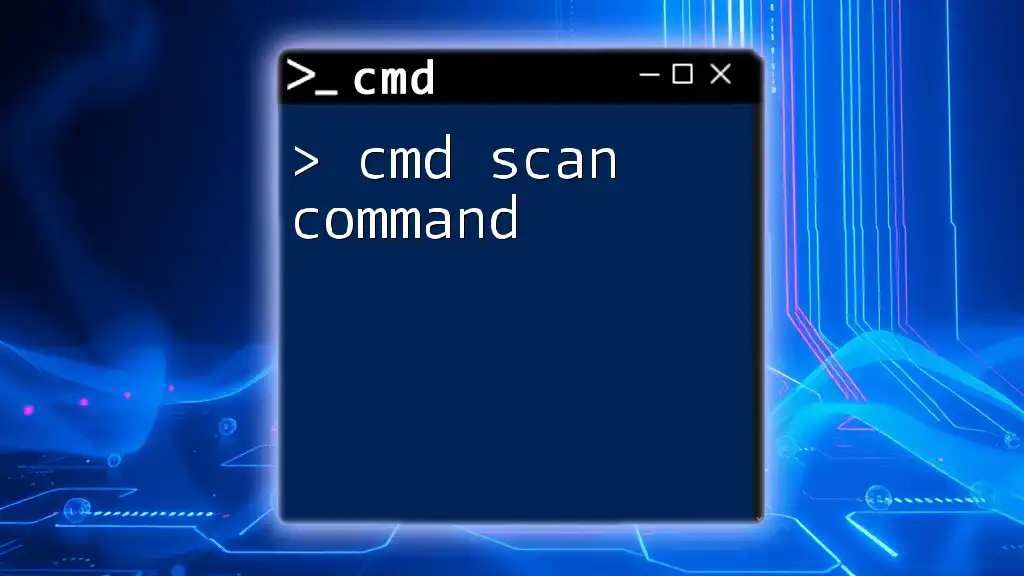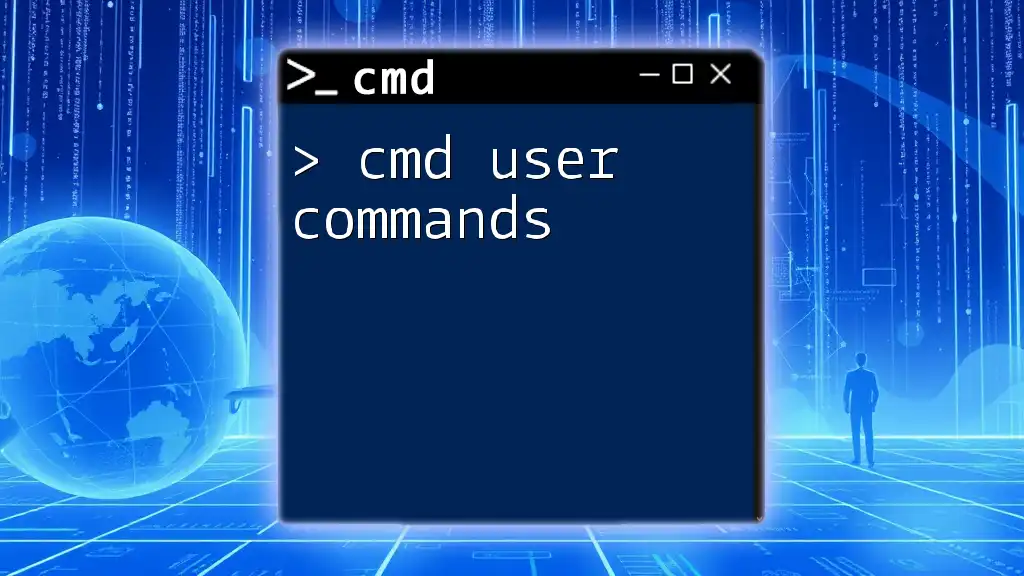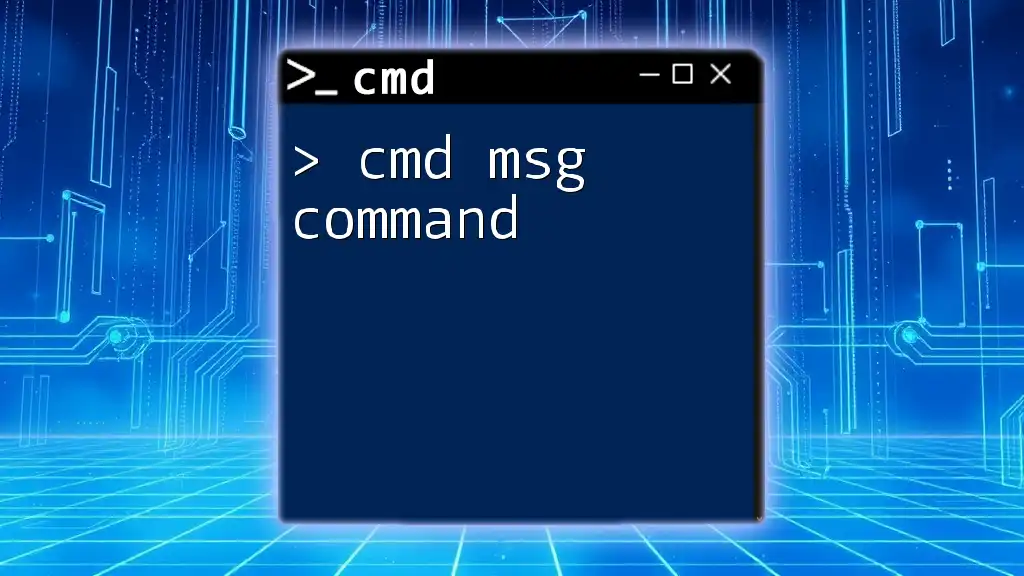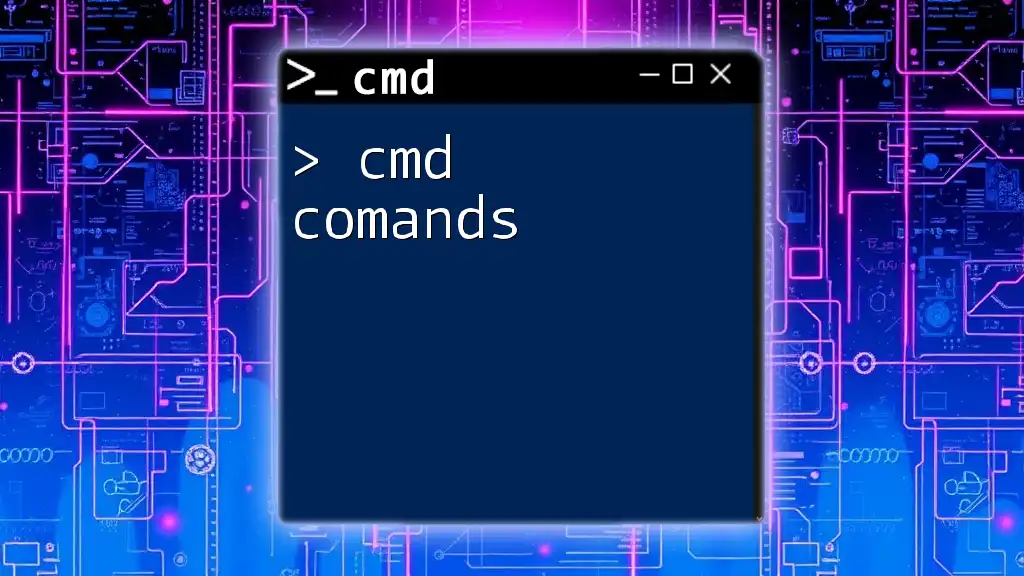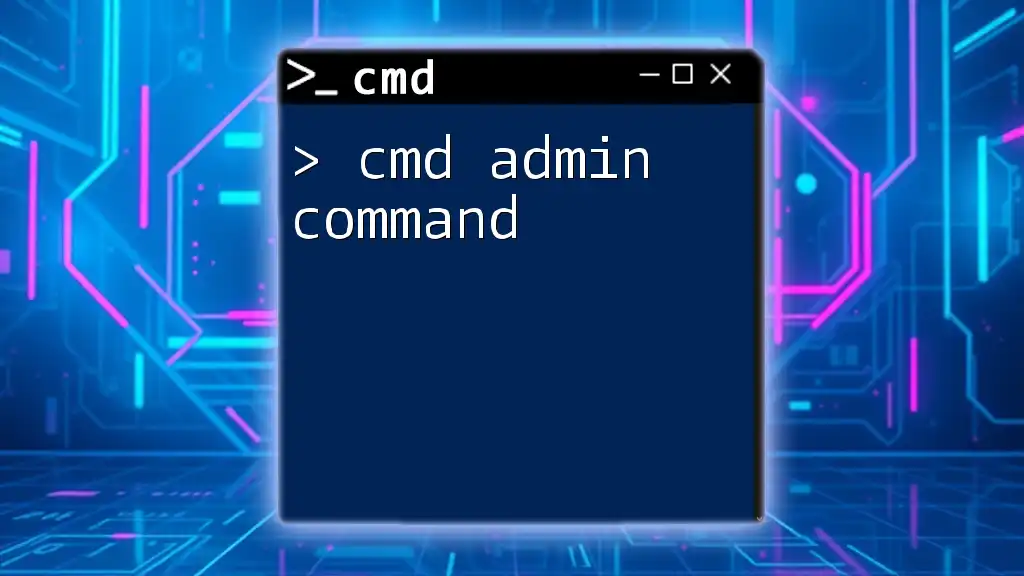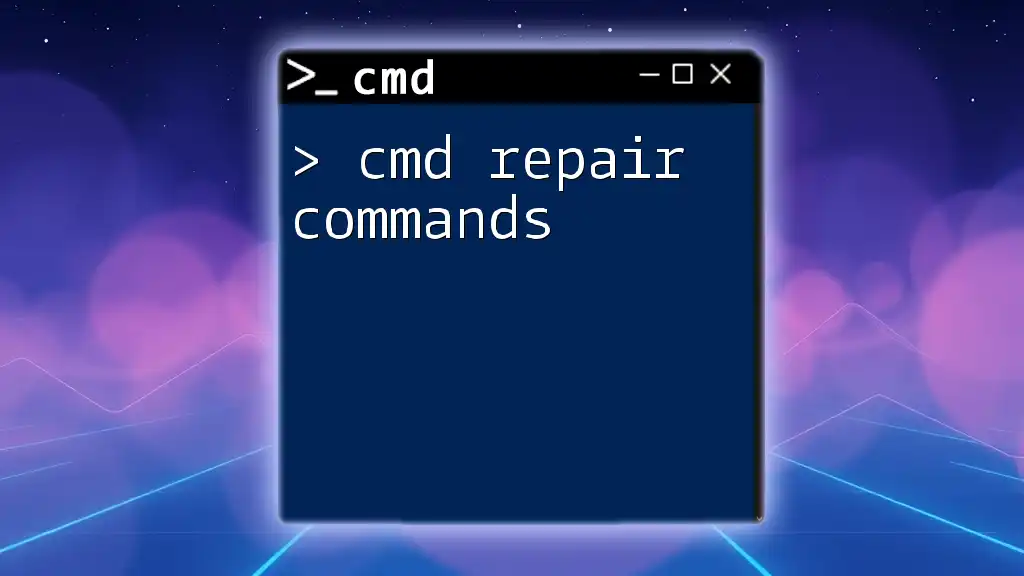The "cmd help" command provides users with a list of available commands and their descriptions in the Command Prompt for quick reference.
help
What is the CMD Help Command?
The cmd help command is a powerful tool that provides essential information about commands available in the Windows Command Prompt. It is particularly significant for users ranging from beginners, who may be unfamiliar with command-line interfaces, to advanced users who need quick references to command syntax and options. Understanding how to effectively utilize the help command can streamline tasks and enhance productivity when working in CMD.
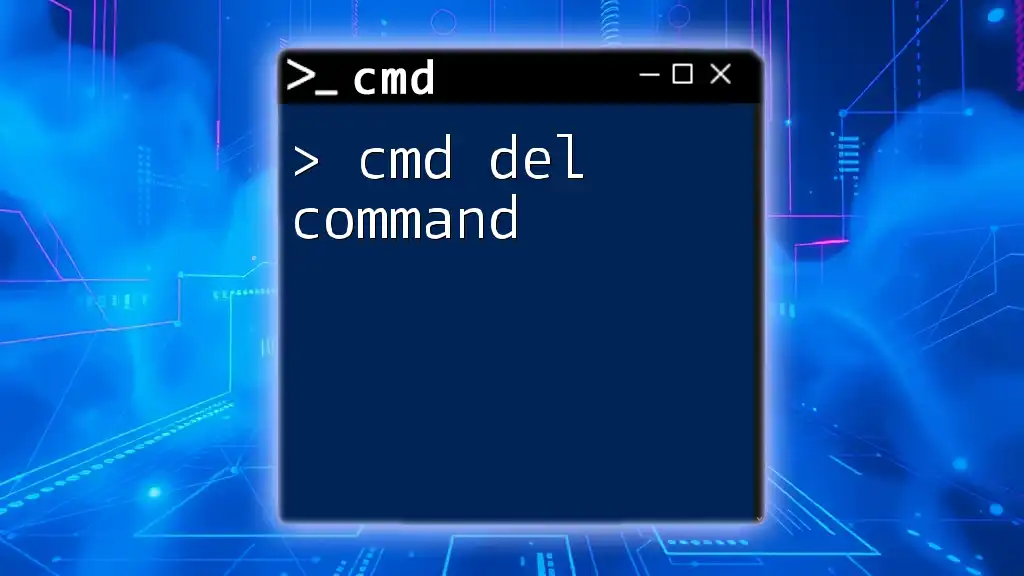
Using the Help Command
Basic Syntax
The most straightforward way to engage the help command is simply to type:
help
This command returns a list of available commands in CMD along with a brief description of their functionalities. This is an excellent starting point for users looking to familiarize themselves with the environment.
Viewing Help for Specific Commands
To delve deeper into a specific command, you can access detailed help directly related to that command. For example, if you want help with the dir command, type:
help dir
This command will display detailed information about the usage of the dir command, including its purpose and available options. It typically explains what the command does, provides syntax, and lists switch options, making it easier to comprehend its application.
Help Command Parameters
The help command can be supplemented with various parameters. Two commonly used parameters are `/?` and `/help`.
To gain a deeper understanding of command usage, you can append `/?` to any command. For instance:
copy /?
This provides comprehensive details about the copy command, outlining its syntax, options, and examples. Understanding these parameters allows for more tailored help.
Code Snippets
For further practical application, here’s how you can access the help for other commands:
- Getting detailed help on file commands:
del /?
This will display help on the del command, detailing syntax, switches, and usage scenarios, ultimately enhancing your command execution efficiency.
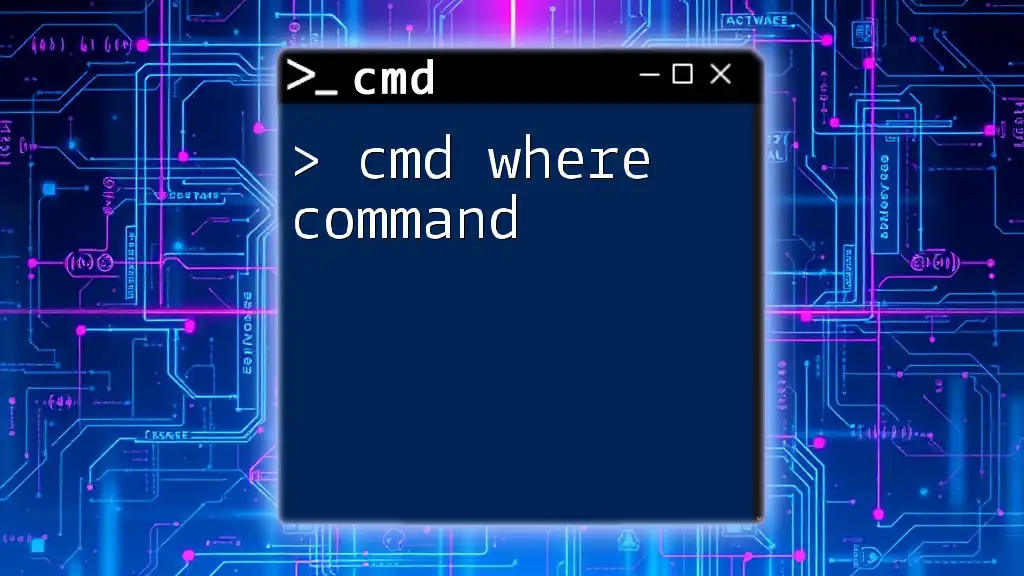
Exploring Additional Help Options
Using Command Options
The help command can also elucidate command options available for more complex commands. Consider the robocopy command:
robocopy /?
This command goes into considerable detail regarding the various switches that can tweak its functionality, helping users understand how to implement various options effectively.
Utilizing Online Resources
Moreover, the help command often provides references to online documentation. It’s beneficial when users need extensive assistance beyond what is presented in CMD itself. This encourages users to seek out additional resources for comprehensive understanding.
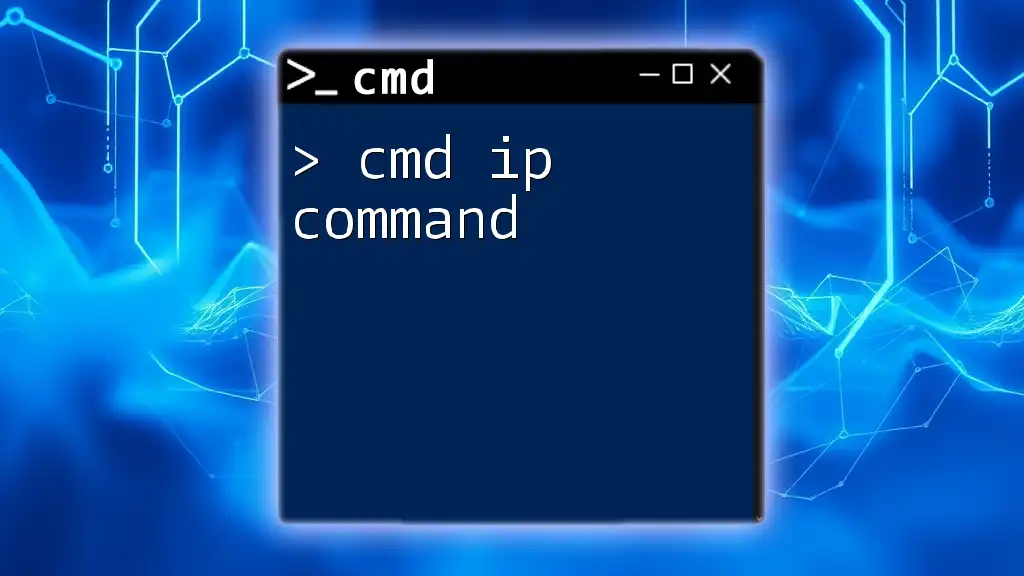
Practical Examples of the Help Command
Example 1: Finding the Syntax of Commands
When trying to learn the syntax of a command, the help command is invaluable. To find out how to utilize del, for instance, execute:
del /?
This will inform you of the command's syntax, options like `/Q` for quiet mode, and examples of correct usage, ensuring you can utilize the command correctly.
Example 2: Learning About Network Commands
Another vital use of the help command comes in networking scenarios. To explore network configuration commands with ipconfig:
ipconfig /?
This command reveals helpful details about various switches available to this command, while elucidating how to gather and configure network information from the command line.
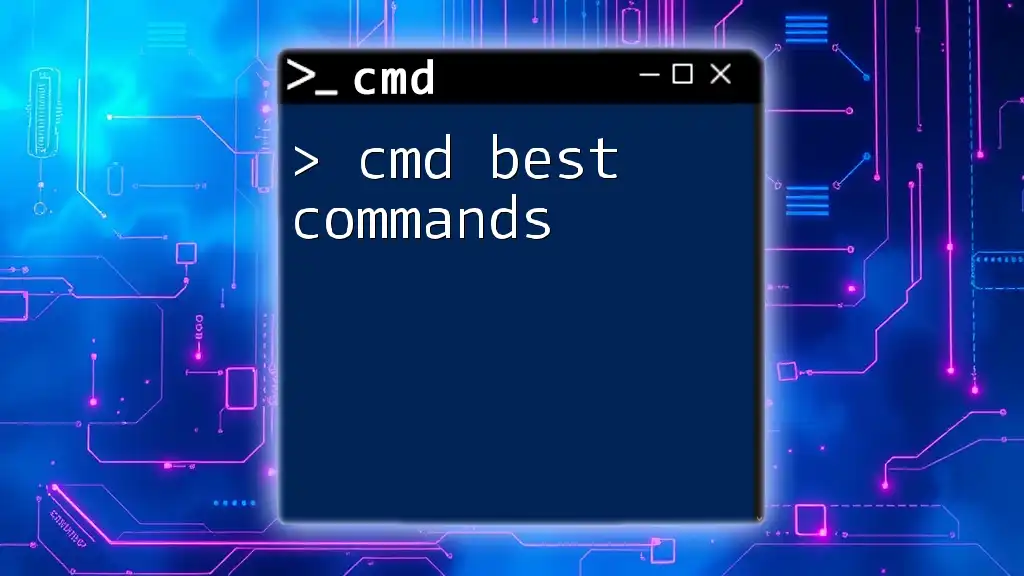
Advanced Tips for Effective Use of the Help Command
Contextual Help for Commands
Several commands provide in-context help by simply executing them without the parameters. For example, running:
netstat
will output active network connections. Users can quickly interpret the information, with several commands offering an intuitive display of parameters when lacking additional switches or arguments.
Combining Help with Other CMD Features
For power users, combining the help command with scripting can become a game-changer in terms of efficiency. Users can craft batch files that include a help functionality, allowing them to create self-documenting scripts for easier modifications down the line.
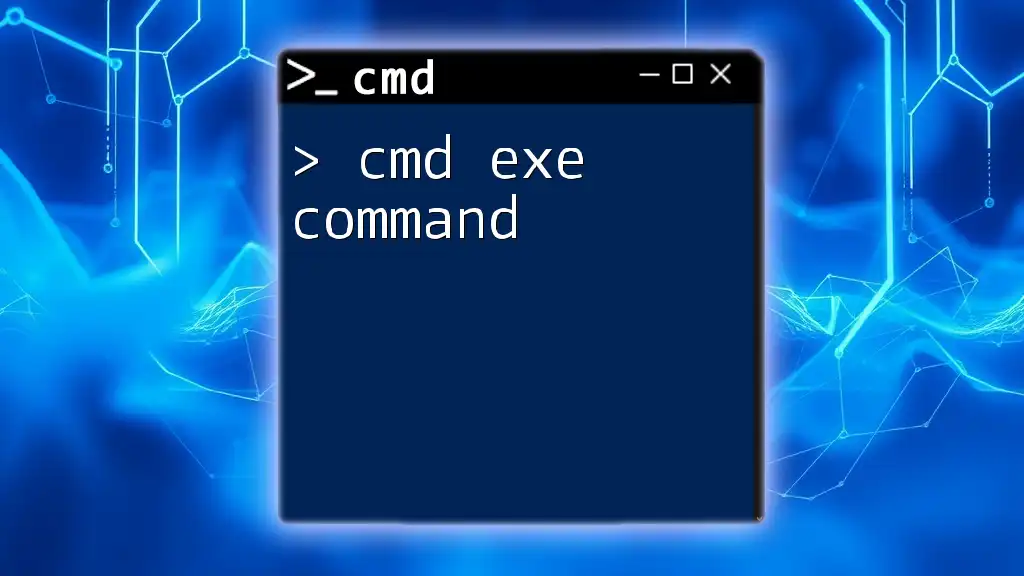
Common Issues and Troubleshooting
Problems Accessing Help
At times, users might encounter issues accessing help. Common reasons include system misconfigurations or using unsupported commands. Make sure to verify the command spelling and that your CMD environment is correctly set up.
Error Messages and What They Mean
Understanding error messages associated with the help command can aid troubleshooting. For instance, if the message reads “The syntax is incorrect,” it indicates an issue with the command structure. Reviewing the command you inputted and ensuring proper syntax can clear up confusion quickly.
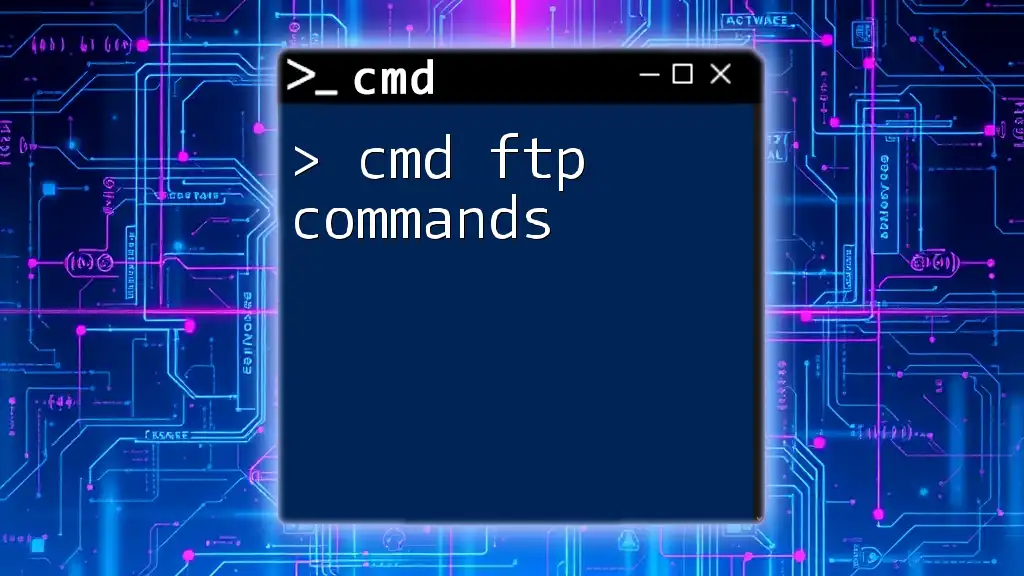
Conclusion
By harnessing the power of the cmd help command, you can greatly improve your command-line proficiency and operational efficiency in CMD. Regular practice using the help command fosters a deeper understanding of command usage, allowing users to navigate the world of CMD like seasoned professionals.
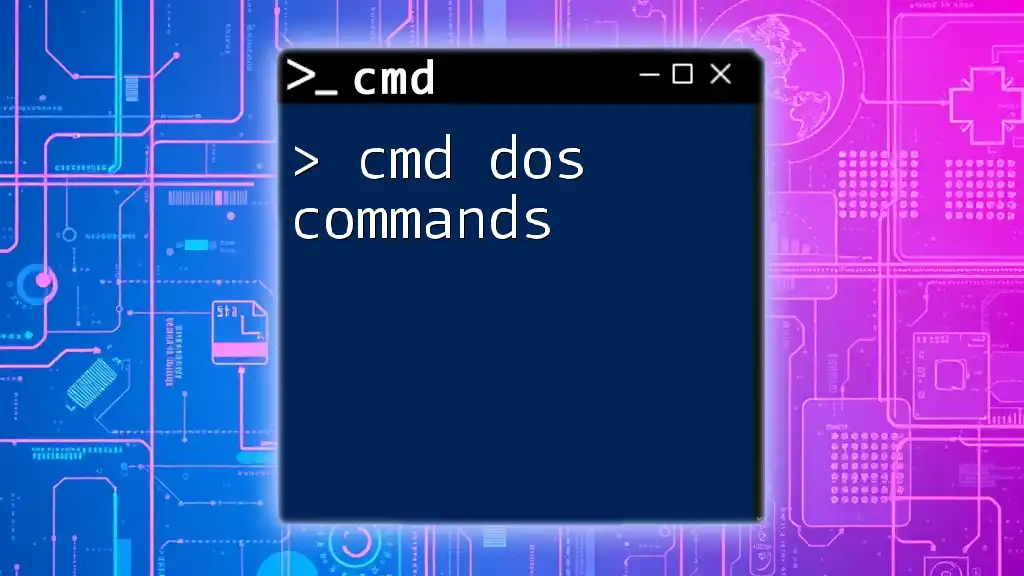
Additional Resources
For further information, you can consult the official Microsoft documentation, which offers comprehensive insights into commands, switches, and utilities available in CMD. Various tutorials and courses are also worthwhile for those looking to expand their command-line skills.
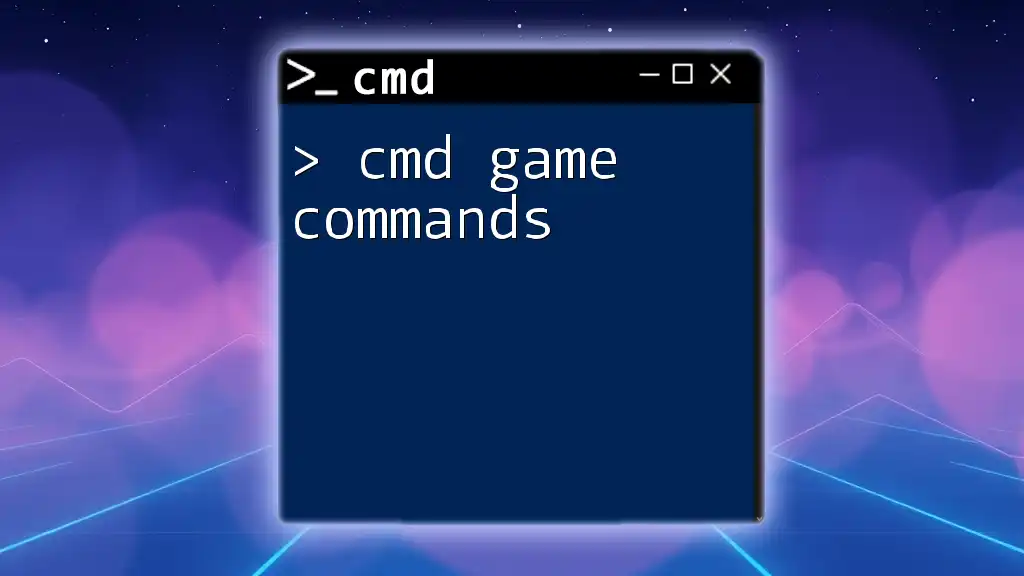
FAQs
What if the Help Command Doesn't Show Any Information?
In the rare event that the help command returns no information, possible reasons include using a command that does not exist, or system issues preventing the command from executing. Verify the command spelling and parameters.
Can I Use Help Command on Other Command-Line Interfaces?
While the help command is specific to Windows CMD, similar commands exist in other command-line interfaces, such as Linux’s `man` and `--help` options, illustrating the universal need for command assistance across diverse operating systems.
